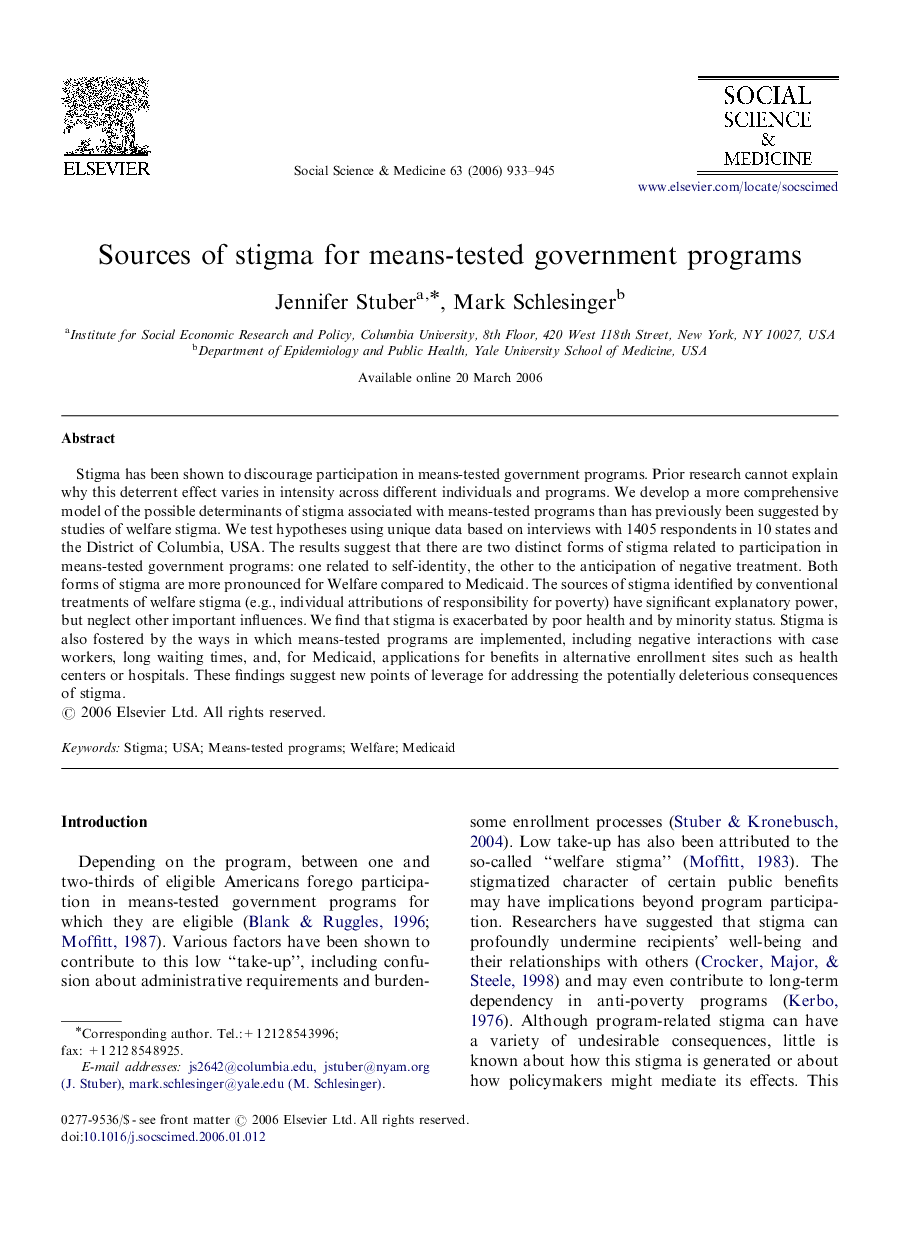| Article ID | Journal | Published Year | Pages | File Type |
|---|---|---|---|---|
| 954297 | Social Science & Medicine | 2006 | 13 Pages |
Stigma has been shown to discourage participation in means-tested government programs. Prior research cannot explain why this deterrent effect varies in intensity across different individuals and programs. We develop a more comprehensive model of the possible determinants of stigma associated with means-tested programs than has previously been suggested by studies of welfare stigma. We test hypotheses using unique data based on interviews with 1405 respondents in 10 states and the District of Columbia, USA. The results suggest that there are two distinct forms of stigma related to participation in means-tested government programs: one related to self-identity, the other to the anticipation of negative treatment. Both forms of stigma are more pronounced for Welfare compared to Medicaid. The sources of stigma identified by conventional treatments of welfare stigma (e.g., individual attributions of responsibility for poverty) have significant explanatory power, but neglect other important influences. We find that stigma is exacerbated by poor health and by minority status. Stigma is also fostered by the ways in which means-tested programs are implemented, including negative interactions with case workers, long waiting times, and, for Medicaid, applications for benefits in alternative enrollment sites such as health centers or hospitals. These findings suggest new points of leverage for addressing the potentially deleterious consequences of stigma.
